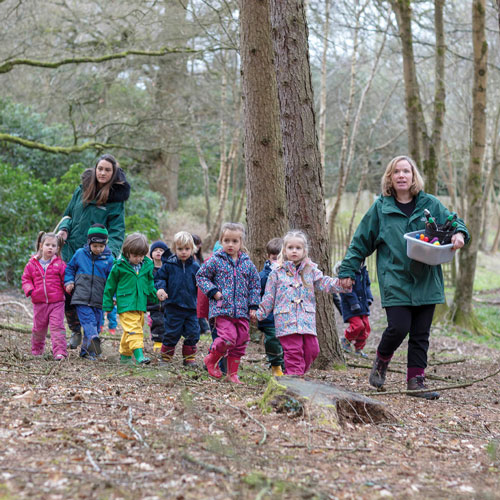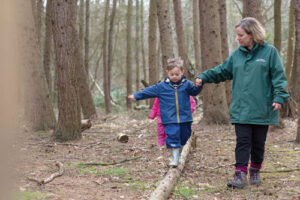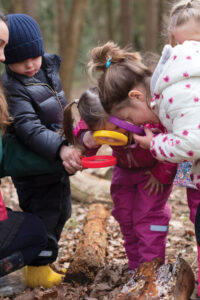
by Barnaby Sandow
Head of School, ACS International School Cobham
The great outdoors is an invaluable and immediate educational resource, uniquely placed to build children’s awareness of the world, while being highly beneficial to both their personal and academic development.
Outdoor learning can take many forms – from taking a maths lesson outside, to giving children the opportunity to explore the fauna and flora of their surroundings. As a result, it has a wide range of benefits.
Research has shown improved health and wellbeing as one of the many outcomes of outdoor learning. Learning in the great outdoors not only allows children to be more active during the school day and lead a healthier lifestyle, but also provides an opportunity for them to relax and subsequently feel more refreshed and ready to learn. Taking the classroom outside can also increase student engagement; outdoor settings have the ability to fully energise an inquiring mind in a completely different way to indoor classroom environments.
 Helping schools to enhance their outdoor learning offering and ensure children can enjoy meaningful and effective lessons, the Forest School Association offers a national accreditation that schools can apply for to deliver both structured and unstructured outdoor sessions. At our school, we have a long-established Forest School programme, led by our own Forest School accredited teachers and trainers, who are able to deliver valuable outdoor sessions for children from the age of two upwards.
Helping schools to enhance their outdoor learning offering and ensure children can enjoy meaningful and effective lessons, the Forest School Association offers a national accreditation that schools can apply for to deliver both structured and unstructured outdoor sessions. At our school, we have a long-established Forest School programme, led by our own Forest School accredited teachers and trainers, who are able to deliver valuable outdoor sessions for children from the age of two upwards.
The beauty of Forest School and general outdoor learning is that it offers children great variety in their learning. In one session, children could be asked to create natural inventions, such as flower crowns or pressed leaf drawings, and share stories with one another; this encourages creativity while enabling them to reflect on their experiences. In another session, children could be taught how to build a campfire and learn about fire safety, giving them the opportunity to physically test their skills in the real world and build the confidence to take risks in a supported and safe environment.
Forest School learning can see children journeying together through the woods or engaging in simple rough and tumble, which engage all of a child’s senses and are crucial for helping them to make sense of the world around them, while strengthening their communication and teamwork skills.
In outdoor sessions, children are also given free time to fully explore and interact with nature, being able to discover a variety of trees, plants and their surroundings in greater detail and learn about the world around them – in the most hands-on way possible.
From ou r experience, we have found that outdoor learning is particularly beneficial for younger children. They are given the space to be active and enjoy being noisy and messy, while engaging in play-based learning and exploration. With activities based on small, achievable steps, spending time outside helps to increase self-confidence and independence in the early years. Additional benefits of outdoor learning for younger children include improving their focus and attention, while physically helping to improve their balance, co-ordination and fine motor skills.
r experience, we have found that outdoor learning is particularly beneficial for younger children. They are given the space to be active and enjoy being noisy and messy, while engaging in play-based learning and exploration. With activities based on small, achievable steps, spending time outside helps to increase self-confidence and independence in the early years. Additional benefits of outdoor learning for younger children include improving their focus and attention, while physically helping to improve their balance, co-ordination and fine motor skills.
Beyond school, there are many ways that parents can facilitate outdoor learning in the evenings and the holidays to continue their child’s development at home. By encouraging simple and fun learning activities, such as den-building, painting a mural in the garden, or taking garden and wildlife photography, parents can help to spark the imagination of their child and increase their motivation to learn in all areas of their life – not just in the classroom!
For more information on ACS Cobham’s provision and to book an open day, please visit:











